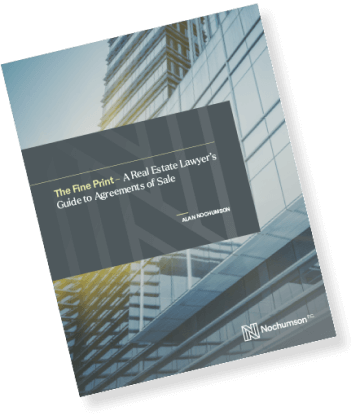The first in a series of whitepapers to be authored by Nochumson P.C. on
real estate and business law topics, The Fine Print introduces you
to why any real estate transaction is improved
by a written agreement of sale.
As any good real estate lawyer will tell you, any buying or selling of property begins
with an agreement of sale – just a name for a written version of this agreement
between buyer and seller.
Here in Philadelphia, Pennsylvania, where our law firm, Nochumson P.C.,
is located, any conveyancing of real estate from one party to another actually
legally requires an agreement of sale, whether you are buying a condominium
unit or a warehouse.
So, why do many states make Agreements of Sale the law?
The main reason is that agreements of sale catalyze a meeting of the
minds that is in the best interest of everyone involved in the deal, a group which
may comprise many more individuals than just buyer and seller. Communication
between all these individuals is key to the success of any deal. Given the sums of
money involved, being unclear about the details of a real estate transaction
may carry life-changing consequences.
This guide will break down what a good agreement of sale
should contain. It should be useful for anyone buying or
selling real estate: whether you are in Pennsylvania or
elsewhere in the country.
Download our whitepaper and learn how. We will not sell
or distribute your contact information.



